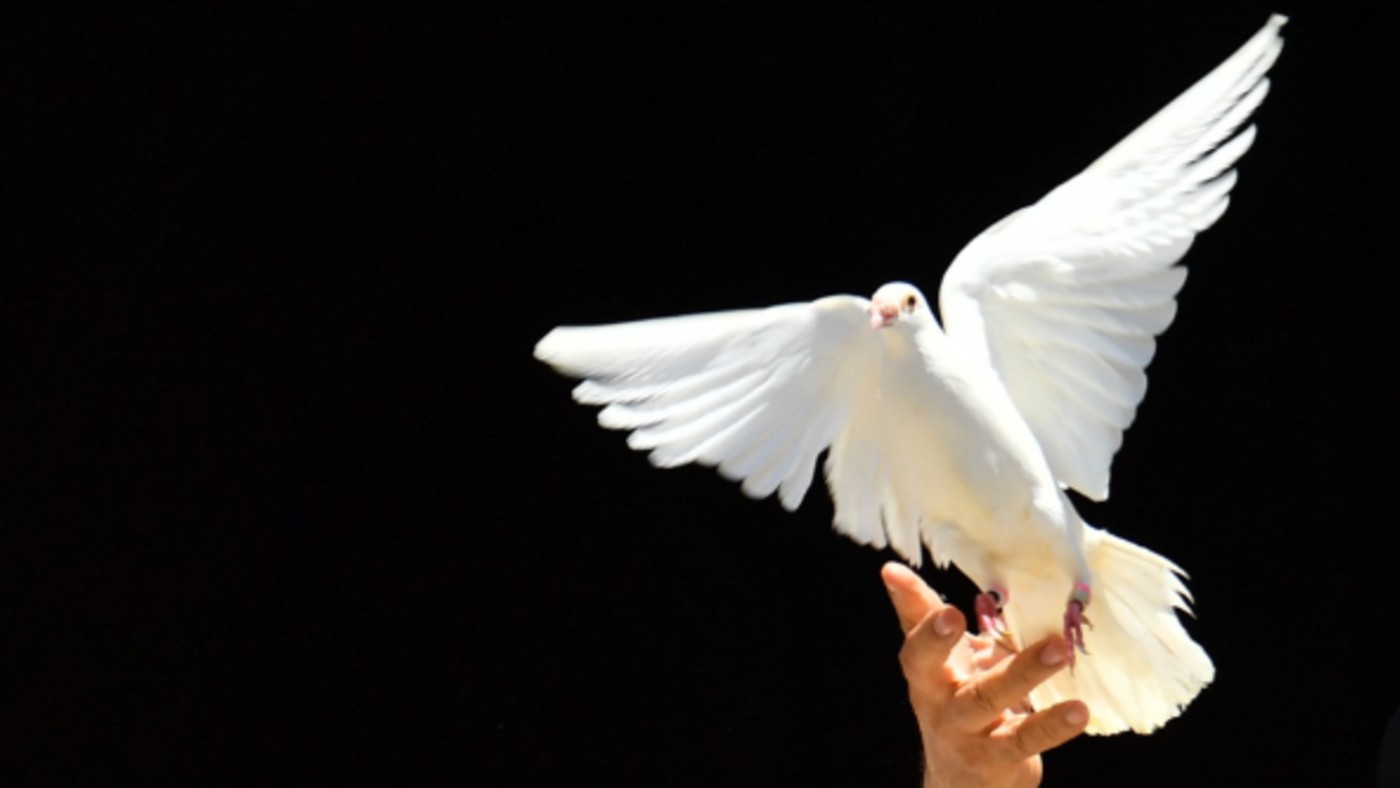Could coronavirus lead to world peace?
International leaders throw their weight behind plans for a global ceasefire – but will it hold?

A free daily email with the biggest news stories of the day – and the best features from TheWeek.com
You are now subscribed
Your newsletter sign-up was successful
International leaders look set to agree a landmark global ceasefire that could bring a temporary halt to many of the world’s conflicts, in a rare moment of solidarity to help combat the coronavirus pandemic.
First mooted by UN Secretary General Antonio Guterres last month when he argued that war-ravaged countries were particularly vulnerable to coronavirus pandemics because they have acutely poor healthcare provisions, the idea has quickly gathered pace, driven in large part by French President Emmanuel Macron.
On Wednesday, Macron told RFI he had secured the support of four of the five permanent members of the UN Security Council needed for a ceasefire to be operable, with Russian President Vladimir Putin “certain to agree too”.
The Week
Escape your echo chamber. Get the facts behind the news, plus analysis from multiple perspectives.

Sign up for The Week's Free Newsletters
From our morning news briefing to a weekly Good News Newsletter, get the best of The Week delivered directly to your inbox.
From our morning news briefing to a weekly Good News Newsletter, get the best of The Week delivered directly to your inbox.
Kremlin spokesman, Dmitry Peskov, said “work is underway”, and if agreed the move would represent “a major act of international co-operation at a time when multilateral co-operation in other areas is weakening”, reports Business Insider.
–––––––––––––––––––––––––––––––For a round-up of the most important stories from around the world - and a concise, refreshing and balanced take on the week’s news agenda - try The Week magazine. Start your trial subscription today –––––––––––––––––––––––––––––––
However, “it remains to be seen whether the peace initiative will be anything more than a hopeful declaration in forcing a halt to wars worldwide,” says The Times.
The newspaper notes that a unilateral two-week ceasefire called by the Saudi-led coalition fighting in Yemen came into effect on 9 April has already broken down, while Kremlin-backed Libyan military leader Khalifa Haftar and Syria’s Bashar al-Assad are unlikely to give their opponents any breathing room.
A free daily email with the biggest news stories of the day – and the best features from TheWeek.com
“Clearly, such an action would not eradicate some of the greatest challenges to world peace” says CNN, but it nevertheless demonstrates “a rare sign of global unity in the current climate” says US news site Axios, especially after Trump announced his plan to halt US funding to the World Health Organization and again questioned China’s transparency over the coronavirus outbreak, casting doubt on its reporting of cases and the origins of the virus.
It would also mark a moment of personal triumph for Macron. CNN says France's 42-year-old president “is now positioning himself to take over the mantle of global leadership long reserved to the older leaders of China, Russia or especially the United States”.
“And right now, he has no real challengers”.
-
 What are the best investments for beginners?
What are the best investments for beginners?The Explainer Stocks and ETFs and bonds, oh my
-
 What to know before filing your own taxes for the first time
What to know before filing your own taxes for the first timethe explainer Tackle this financial milestone with confidence
-
 The biggest box office flops of the 21st century
The biggest box office flops of the 21st centuryin depth Unnecessary remakes and turgid, expensive CGI-fests highlight this list of these most notorious box-office losers
-
 Epstein files topple law CEO, roil UK government
Epstein files topple law CEO, roil UK governmentSpeed Read Peter Mandelson, Britain’s former ambassador to the US, is caught up in the scandal
-
 Iran and US prepare to meet after skirmishes
Iran and US prepare to meet after skirmishesSpeed Read The incident comes amid heightened tensions in the Middle East
-
 Which way will Trump go on Iran?
Which way will Trump go on Iran?Today’s Big Question Diplomatic talks set to be held in Turkey on Friday, but failure to reach an agreement could have ‘terrible’ global ramifications
-
 Israel retrieves final hostage’s body from Gaza
Israel retrieves final hostage’s body from GazaSpeed Read The 24-year-old police officer was killed during the initial Hamas attack
-
 China’s Xi targets top general in growing purge
China’s Xi targets top general in growing purgeSpeed Read Zhang Youxia is being investigated over ‘grave violations’ of the law
-
 Panama and Canada are negotiating over a crucial copper mine
Panama and Canada are negotiating over a crucial copper mineIn the Spotlight Panama is set to make a final decision on the mine this summer
-
 Why Greenland’s natural resources are nearly impossible to mine
Why Greenland’s natural resources are nearly impossible to mineThe Explainer The country’s natural landscape makes the task extremely difficult
-
 Iran cuts internet as protests escalate
Iran cuts internet as protests escalateSpeed Reada Government buildings across the country have been set on fire